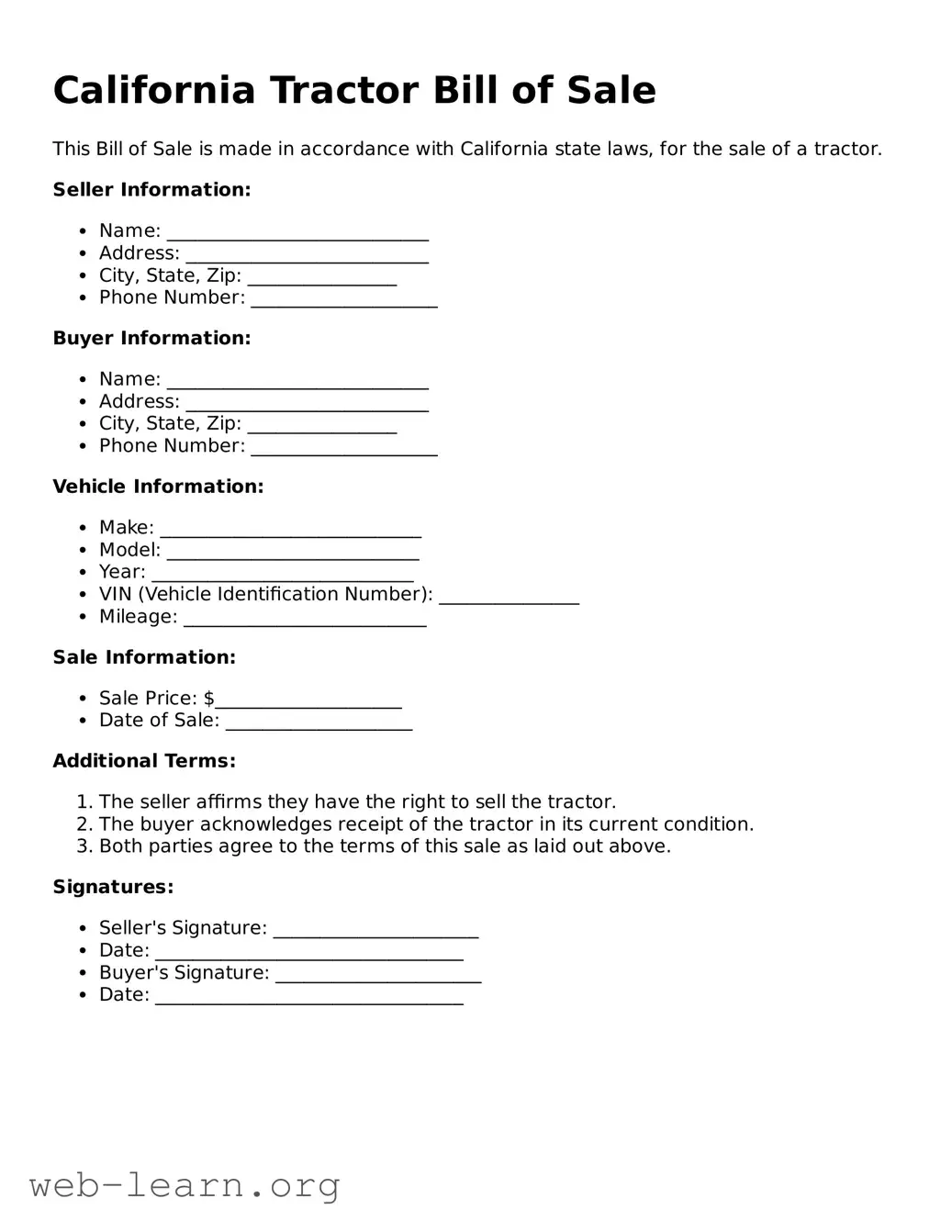Attorney-Approved Tractor Bill of Sale Document for the State of California
The California Tractor Bill of Sale form is a legal document that records the sale and transfer of ownership of a tractor in California. This form serves as proof of the transaction for both the buyer and the seller, outlining important details such as the purchase price, tractor specifications, and the identities of the parties involved. Understanding and properly completing this document is essential for ensuring a smooth and legally sound transfer of ownership.
